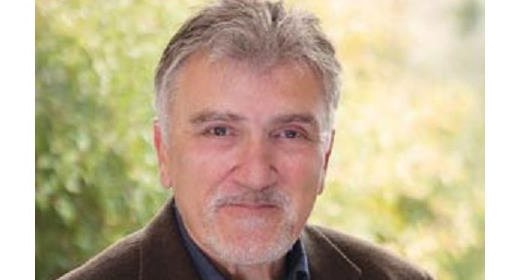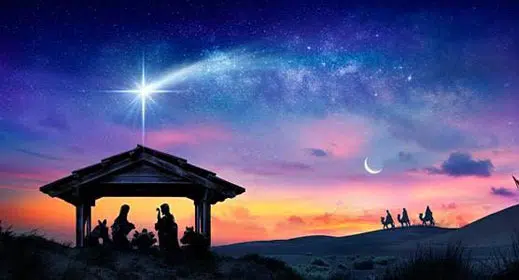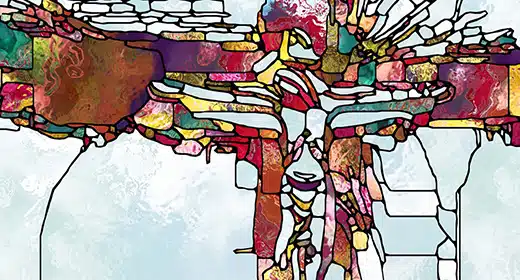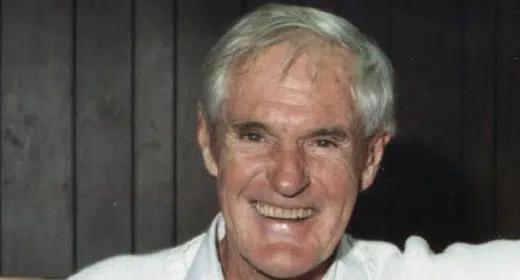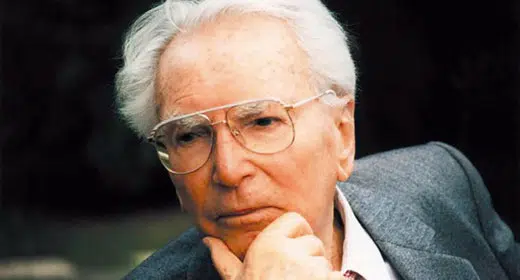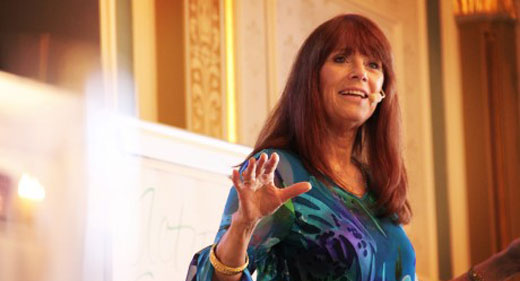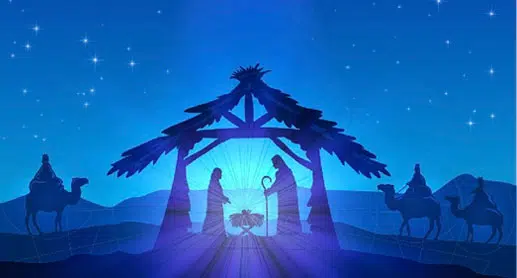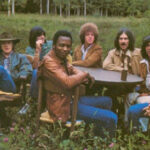At the foot of a holy mountain in India, Will Gethin meets Mooji, the rising star of advaita
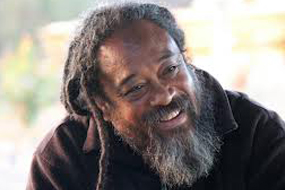 by Will Gethin: ‘Namaste Arunachala,’ says the dark-skinned hulk of a man with greying dreadlocked hair, raising pressed palms to his forehead. ‘Welcome to Satsang.Poised on stage in an armchair swathed in a long white salwar kameez, he flashes a gentle smile, his eyes sparkling with a Buddha-like serenity.
by Will Gethin: ‘Namaste Arunachala,’ says the dark-skinned hulk of a man with greying dreadlocked hair, raising pressed palms to his forehead. ‘Welcome to Satsang.Poised on stage in an armchair swathed in a long white salwar kameez, he flashes a gentle smile, his eyes sparkling with a Buddha-like serenity.
Here beneath the sacred mountain of Arunachala in Tiruvannamalai – or ‘Tiru’ – in Tamil Nadu, South India, some 400 spiritual seekers are gathered reverently before him in a converted rice mill. Arunachala, ‘Hill of Fire’, is an important pilgrimage site for Shaivites and is the renowned abode of the realised sage Ramana Maharshi (died 1950). Annually from November to February, ‘Tiru’ becomes a major international pilgrimage centre, where leading spiritual teachers hold Satsangs attended by seekers from round the world.
‘I have nothing to give you that you don’t already have, you are the truth,’ continues the dreadlocked Buddha. ‘Satsang offers the opportunity for you to go beyond the hypnosis of your conditioning and discover that pearl of truth. It’s an invitation to be open to guidance away from delusion – the cause of suffering – and reveal yourself in your original beauty.’
On a table beside him is an ornamental statue of Ramana Maharshi and behind him hangs a large framed photograph of the great Indian advaita master H.W.L. Poonja – known as Papaji, a disciple of Ramana. And while this dreadlocked figure below looks every inch another Indian holy man – curiously he is Tony Moo-Young, a Jamaican from Brixton, London – who popularly known as Mooji, has fast become the most popular spiritual teacher in Tiru and a rising international legend.
Following in the footsteps of Papaji and Ramana, Mooji shares from direct experience that our experience of life as separate entities is not true. We are non-dual, unified existence; this is the definition of advaita, an ancient wisdom of India. Self enquiry, which Ramana resurrected in modern times, Mooji considers an unsparing tool in assisting the seeker to awaken from false identification with ‘body-mind’ and personality – the cause of separation – to a realisation of who you really are – the real ‘Self’ that lies beyond it – pure awareness.
In the rice mill the fans suddenly stop whirring on the ceiling. ‘There is a higher reason for this power cut,’ japes Mooji with trademark humour, ‘it’s the power cut of mind itself!’ Laughter ripples around the hall.
I first heard about Mooji from a friend, Manjusri in London, who is part of his support team. Intrigued that she considered Mooji a truly awakened master, and finding myself due in India while Mooji was sharing doing Satsangs, I decided to look him up. Watching him on Youtube, I was impressed by his insightful lucidity and enjoyed his childlike playfulness; during a ‘Laughing Buddha’ video in which he laughs uncontrollably in Satsang, I found his laughter contagious and joyfully giggled along with him.
Reaching Tiru, I hooked up with Manjusri’s friends Shivani and Vishni, diehard Sai Baba devotees. Explaining I was eager to meet Mooji and deliver bars of his cherished cherry-flavoured Green & Black chocolate (a gift from Manjusri), I discovered I was in luck. ‘We do Mooji’s laundry,’ announced Shivani – ‘I’m delivering it now, hop on the back of my moped, I’ll introduce you!’
While I had heard various reports of how loving Mooji was, I wasn’t prepared for the magnitude of this reality. ‘Come,’ he beckoned when we met, and sitting down beside him he pulled me into his arms like a big cuddly bear, and tenderly stroked my hand. ‘So how was your trip?’ he asked, beholding me with radiant, open-hearted eyes.
Anthony Paul Moo-Young was born in Port Antonio, Jamaica in 1954. Growing up in a typical Jamaican Christian community, he showed no especial spiritual impulse and lived life like the rest of us. In 1969, he moved to London, settling in Brixton. He became a street artist painting portraits and working with stained glass in the West End before becoming an art teacher at Brixton College.
Mooji’s spiritual journey kick-started with the sudden arrival of a Christian mystic at his door. ‘He initially came asking about my stained glass work and then we’d get talking about Christianity and I felt guided by him,’ Mooji remembers. ‘Then one time I asked if he’d pray for me, and he did, one hand on my head. When he was finished, I found myself saying, “Please help me, please guide me”. And a profound change occurred; from the next day, I felt strangely more sensitive, like a greater clarity and awareness and a feeling inside of lightness and relaxed excitement.’
A year later, in 1987, aged 33, Mooji stopped working and went to live with his sister. ‘Something inwardly was moving differently and I wanted to give space to what I related as a God presence in my heart. There was a tremendous presence within my body, like sitting inside a Russian doll; I felt like I’d surrendered my individuality into this higher presence and let go of being in charge.’
Giving several years to this ‘inner growing’ process, he spent much of it ‘alone in a contemplative mood’. In 1993, he went to India, winding up at Papaji’s feet in Lucknow. His awakening deepened when Papaji publically humiliated him in Satsang, adding: ‘If you wish to discover the truth you must vanish.’ Mooji felt an inner surge of anger. ‘It was like a resistance and I felt ashamed, exposed. My mind was in a storm.’
After the Satsang, he set off in a fury, and then taking a walk, the anger he’d felt instantly dissipated. ‘There was only space, emptiness. I couldn’t find myself, or any context – being someone’s father, partner, a Jamaican, a man – it was not there, yet consciousness remained as an absence of any kind of quality. I could see my body, but it wasn’t who I was. I could see traffic going by and all this, but it was like nothing, like watching a film.’
Returning home from India, he started to sell incense in Brixton market ‘in a detached kind of energy’. People started to pick up on his wisdom. He would write ‘Thought for the Day’ sayings, giving them freely to thousands. People brought him their concerns and he’d invite them back for tea. He started to draw a crowd, people came with friends. And when a woman visiting from Ireland invited him to attend her meditation group, his first formal Satsangs began in Ireland.
Now ten years later, Mooji’s Satsangs are internationally renowned. Catching the first six days of this two-month stretch of Satsangs in Tiru, I witnessed one seeker after another ask him questions about awakening and share their struggles in the hope they too would awaken. Always Mooji answered with tremendous authority, simplicity and articulate clarity as he strived to inspire real ‘seeing’, an understanding of who they were beyond their conditioned identity with ‘I’ as body, mind or ego, to the realisation of their true nature as consciousness, the inherent feeling ‘I am’, ‘I exist’, which everybody knows beyond doubt. And yet for a novice like myself, advaita can be tricky to comprehend.
‘Help me to see what I don’t see,’ asked a seeker.
‘Can the “seer” see itself?’ Mooji responded. ‘A knife can cut many things but not itself. Eyes can see many things but not themselves. If you have the intention to see the seer – can the seer be any other than the Self?’
‘How do I find my real Self?’ enquired another.
‘The Self is not a man or a woman,’ Mooji said, ‘but a fragrance of knowledge. Before knowledge of any kind can occur, including that of the body with which you identify, ‘’I am” must be present first. “I am the body” is not our original being. Sieve out what came later so you recognise the original “I am” again as who you are.’
A man confessed to having ‘bad thoughts’. Mooji said these thoughts weren’t ‘bad’, they were just too strongly identified with his ‘I’ identity. ‘If you could see this “I” as a virtual identity, you would find peace,‘ he said. ‘ “I-me” is a costume we wear while we sleep in the world, believed in, it becomes the pyjamas of the being.’
Sometimes he would instigate self enquiry – the question ‘Who am I?’ – by which the seeker is encouraged to look for the source of the ‘I’-sense – the intimate feeling of a personal ‘me’, or ego– which, Mooji says, is the idea we have of who we are. Under his guidance, the ego or conditioned consciousness is exposed as unreal and the true Self recognised as ever-present and perfect.
‘I left money and success to try and find my Self and so far nothing’s happened,’ reported a seeker.
‘It’s a mystery it takes you so long to see what I see,’ Mooji replied. ‘Your attention goes to your thoughts, so, effectively, you haven’t come home. 99.9% of things don’t trouble you. But just as one finger can cover the sun, one concept believed in can eclipse the intuitive recognition of truth. Which concept is shielding your eternal joy? Is it my fantasy that everyone can awaken to that truth?’
And during Satsang, I’d sometimes wonder was this process actually leading anyone anywhere? Describing the enlightened state or how to find it is meant to be impossible anyway, right? So was this all just a cosmic merry-go-round?
In the cafes of Tiru, I quizzed ‘Mooji seekers’ in the bid to understand their devotion.
‘I was planning to do a Zen retreat next week,’ said James, an entrepreneur from Lanzarote. ‘But Mooji says all other spiritual paths are futile, it’s pointless searching elsewhere. So I’ve decided to dedicate myself to the full two months of Satsangs, I really want to get this.’
Kate, a yoga teacher from London, was more sceptical. ‘I feel Mooji’s approach is too mystical, it’s not simple enough. I don’t see anyone around him becoming enlightened.’ (Manjusri later assured me she’s witnessed many people awaken through Mooji’s presence).
‘It’s a challenging path but if you have the inner hunger, you just get on with it,’ said Sarah, a business coach from London. ‘When I come here, I get ill, I get cuts and bruises, difficult karma comes up and mental struggle. But I don’t have a choice.’
I remained unconvinced this path was for me, surely the stakes were too high – from what I understood, Mooji was asking us to give up our identities, our personalities – was there really no half measures, was it not possible to maintain your identity and have more freedom?
Yes it was, Mooji later confirmed. ‘God is not asking you to give up your sweeties. It’s not really identity which is the problem, but belief in it; belief that “I am that” and the attachment to that identity. So rather than trying to get rid of the ego, go beyond it, by observing it. In many spiritual disciplines the language seems harsh, like “You have to kill the mind” – and at a certain point you can come to appreciate these statements in a way that doesn’t seem so aggressive. It simply means to transcend the influence of the conditioned mind, and you are not the mind, you are consciousness within which mind is an aspect of consciousness.’
Interviewing Mooji, he has such a strong and loving presence that at times I felt like welling up. And when he explained how a universal experience of the Self could generate world peace, the penny seemed to drop:
‘The human being has not yet found universal unity. Because we are mostly dedicated to our mental existence, our egoic identity, but there can never be a common ground in the mind. People have tried, they say “I am going to make a perfect world”, but for some people your heaven would be hell. So the meeting point isn’t the conceptual realm. The mind has to be directed back to its origin, and I believe that’s the challenge of the human expression of consciousness.’
And is this Mooji’s mission?
‘I don’t feel I have a mission, it’s just like somebody comes to your house and you have food to share with them. It’s like that,’ he chuckled.
Back home, the final endorsement for Mooji came from leading spiritual travel writer Piers Moore Ede. ‘After several years travelling through Asia on the wholehearted search for a spiritual teacher, I returned to London to find that the one I’d been looking for was living in Brixton all the while,’ he told me. ‘Meeting Mooji is to come face to face with the “empty mirror” spoken of in Zen: it’s the universe itself looking back at you, showing what you truly are.’

